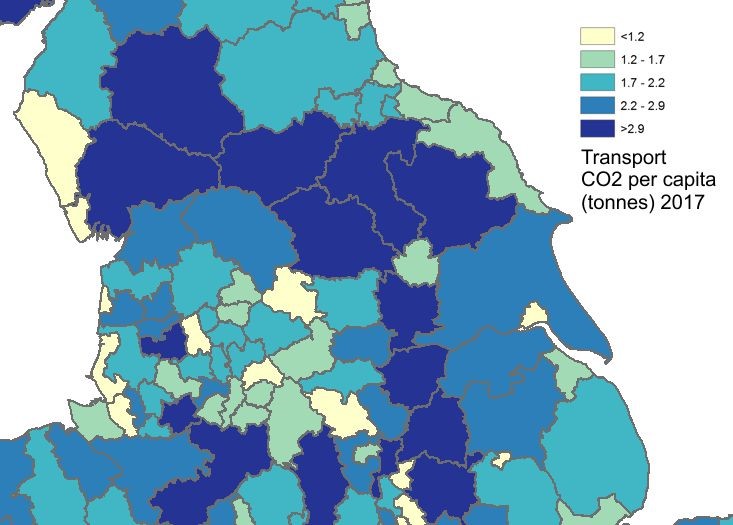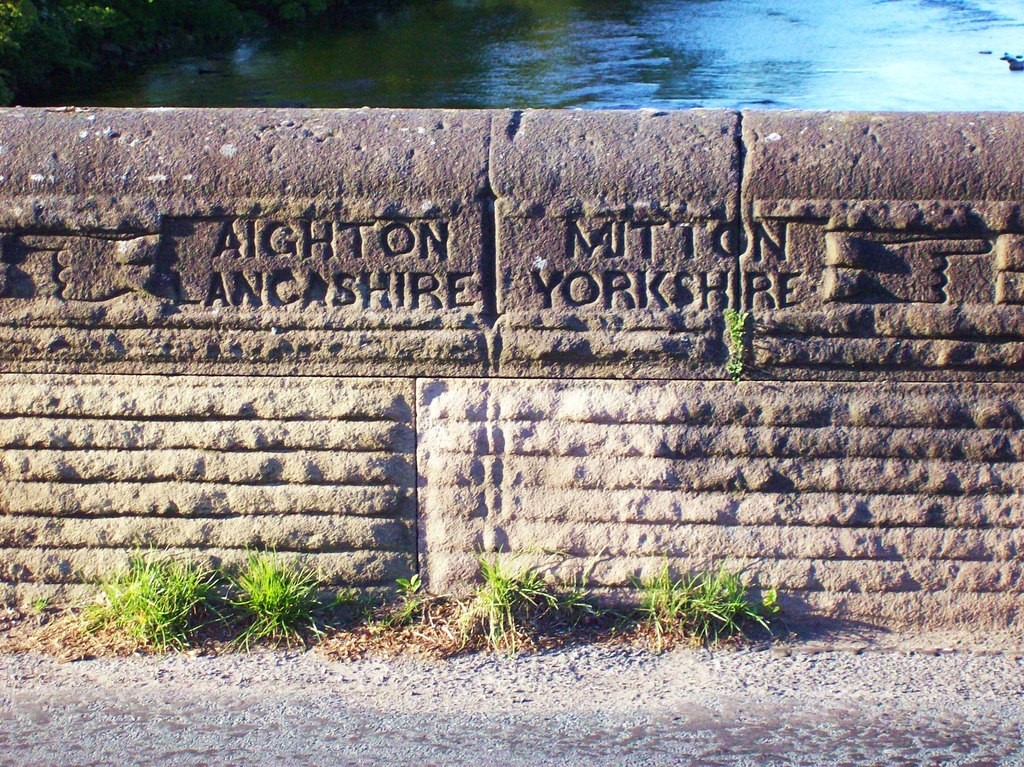Professor Greg Marsden, University of Leeds
This blog celebrates the launch of a new research network called DecarboN8. The network is working with Universities across the N8 research partnership, local authorities and industry across the North to develop an integrated test bed and provide open data on carbon to enable researchers to tackle our critical decarbonisation challenge in transport. But why the North and why indeed ‘place’ based carbon planning?
We already know that there are major differences (more than 100%) between per capita climate change emissions from transport between different local authorities (see Figure 1). This reflects the fact that there are different geographies, different transport alternatives and different fleets. In short, there are different problems and different opportunities. We should therefore be thinking about the potential for different solutions in different places.

Figure 1: Major disparities in per capita CO2 from transport (Source: BEIS 2019)
However, it is not that simple. Vehicles rarely reside solely within one local authority area and might require refuelling or maintenance infrastructure in a wide range of places. This is even more true when heavy goods vehicles are considered. So, there are lots of research challenges to be addressed to understand over what spatial scales co-ordination matters and when local diversity of approach will get us to Net Zero faster.
The North is also an interesting test-bed to develop as it is an area which has pan-regional transport governance through Transport for the North which has been developing its carbon knowledgebase and policies. Underneath that there are a range of agencies on roads, rail, regional and local transport. There are significant uncertainties about the sorts of demand futures that might be planned for and, therefore, the right balance between building carbon intensive infrastructure for different modes or investing in better use of existing assets is difficult to assess. Our work will be trying to develop tools to understand those trade-offs and solutions to deal with the highest carbon issues which arise.

Figure 2: Cross-boundary collaboration will be a key issue in the network ((c)Len Williams)
Finally, we believe that the scale of the carbon transition will pose significant challenges to society. The transition risks being very uneven and this needs to be understood, carbon understanding built and communities brought in to the design of policies and solutions if there is to be any chance of a transition in practice. We will be engaging extensively with the public and with decision-makers across the region as part of our research programme.
The network is open to academics from across the UK, local, regional and national government, industry and community groups. If you would like to follow the activities of the network or help develop a transformational trial in the North then please get in touch.
